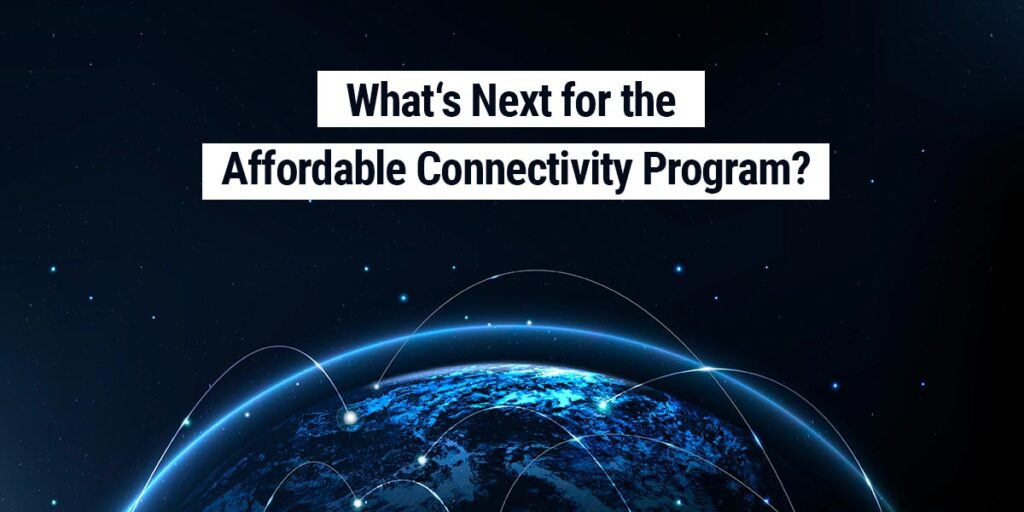The Affordable Connectivity Program (ACP) has been a lifeline for millions of low-income households in the United States, providing them with a $30 monthly discount on home broadband service.
However, the program is facing an imminent expiration, which threatens to widen the digital divide in the country. The FCC has established a timeline for winding down the ACP in the absence of an extension. This includes sending notifications to participating customers and gradually discontinuing program activities.
The federal government has stopped accepting new enrollees on February 7, and ACP outreach grants must also cease at this time.
Almost a year ago, experts and organizations like Brookings Metro warned about the potential consequences of the ACP’s expiration. It was projected that the program would run out of funds in late April or May 2024.
Now, we are at the precipice of this expiration, and congressional efforts to extend the funding are facing an uphill battle.

Impact of Program Expiration on Households and the Economy
The value of the ACP has been confirmed by data collected over its two-year operation. A recent study showed that the program’s participants fear losing their jobs, access to healthcare, and worry about their children falling behind in school if they lose their broadband connection.
The end of the ACP would not only impact these families but also have a wide-reaching effect on the entire economy.
Research suggests that for every dollar spent on the ACP, the nation’s GDP increases by $3.89. This multiplier effect is nearly twice that of the larger Broadband Equity Access and Deployment (BEAD) Program, which builds digital infrastructure in unserved areas.
Moreover, disconnecting low-income individuals from broadband can increase the cost of government, particularly in terms of healthcare savings and reduced emergency department visits.
Support for Extending the Affordable Connectivity Program
From a policy perspective, the ACP has received bipartisan support. A recent poll showed that 79% of voters, including a majority of Republicans, Independents, and Democrats, support continuing the program.
Additionally, 26 governors from both parties endorsed extending the ACP through a joint letter.
Proposed legislation, known as the Affordable Connectivity Program Extension Act, has been introduced with bipartisan and bicameral support. The bill aims to provide an additional $7 billion to extend the program’s operating timeline and ensure that participating households do not lose connectivity.
While the bill may face challenges in Congress, the increased awareness about the program’s expiration and constituent pressure may help garner support for its passage.
Legislative Efforts and Challenges
Efforts to extend the ACP face two significant challenges: addressing program limitations and gaining sufficient support in Congress.
Affordable Connectivity Program Extension Act
The Affordable Connectivity Program Extension Act, introduced by a bipartisan, bicameral group of legislators, aims to provide additional funding to extend the ACP and prevent households from losing connectivity.
The bill has received support from a diverse range of politicians, including conservative Republican senators.
Obstacles to Passing the Extension Bill
Despite the bipartisan support for the ACP, there are obstacles to passing the extension bill.
Some legislators may object to the program’s benefit levels or qualification requirements, and there is ongoing debate over federal spending.
Additionally, the tight timeline to appropriate funds poses a challenge to continuing the program without interruption.
Implications of the Program’s Potential Expiration on Various Stakeholders
The potential expiration of the ACP would have far-reaching implications for households, communities, broadband service providers, and states.
Impacted households would risk losing connectivity or accumulating debt, hindering their future ability to subscribe to services.
Students would face the risk of losing connectivity during the academic year, potentially affecting their education.
Localities that have invested in connecting residents to the ACP would face challenges in maintaining residents’ trust in government.
Broadband service providers like Airtalk Wireless and Cintex Wireless that have developed plans dependent on ACP participation may face challenges in complying with grant requirements and improving the financial sustainability of their projects.
The termination of the program could disrupt their operations and limit their ability to serve low-income households.
Local and Congressional Actions to Save the Affordable Connectivity Program
To save the ACP, local leaders and congressional representatives must take action.
Strategies for Local Leaders to Influence Congress
Local leaders can play a crucial role in advocating for the extension of the ACP. They can sign letters urging Congress to pass the Affordable Connectivity Program Extension Act and communicate with broadband providers serving their communities.
Engaging with providers and discussing the program’s importance can help build support for its continuation.
Local leaders should ensure that broadband providers are planning to follow the consumer protection requirements outlined by the FCC. They can encourage providers to communicate with ACP customers about the extension bill and urge them to contact Congress.
Collaboration between local leaders and broadband providers can amplify the voices advocating for the program’s extension.
Advocacy Efforts and Tools for Individuals and Organizations
Individuals and organizations can participate in advocacy efforts to save the ACP. Online toolkits provided by the National Digital Inclusion Alliance and Common Sense Media offer resources for advocates. They can also utilize state-by-state fact sheets on ACP participation regularly updated by the White House to demonstrate the program’s positive impact on local communities.
The Affordable Connectivity Program has received broad bipartisan support and has become crucial in bridging the digital divide.
It is essential for advocates to act quickly and for Congress to understand the urgency of extending the program.
With concerted efforts, the ACP can be saved, ensuring that participating households maintain connectivity and the program’s economic and political benefits continue to benefit the country.

